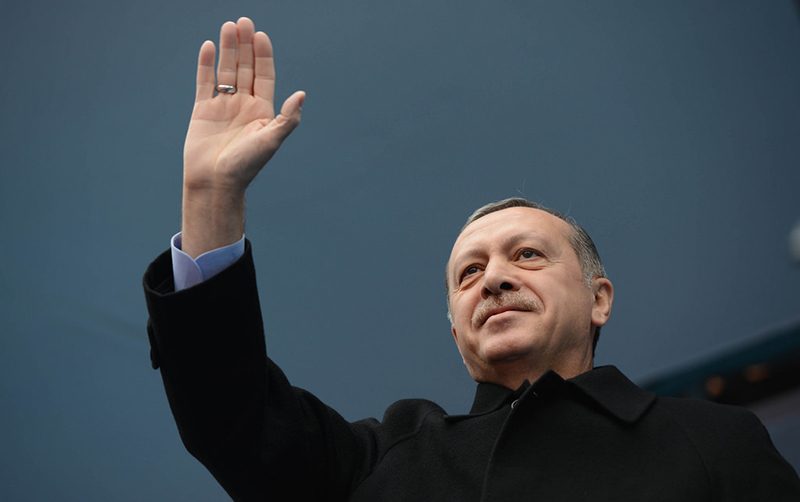Ankara, Turkey: President Recep Tayyip Erdogan’s election triumph, winning a new mandate with even stronger powers, is likely to embolden the Turkish strongman to take a tougher line on issues ranging from the fight against Kurdish militants to foreign policy, analysts say.
He will enjoy the greatest powers of any Turkish elected leader in over half a century under a new constitution which he argues will usher in efficient top-down governance.
Opponents, however, fear a new autocracy.
The president’s ruling Justice and Development Party (AKP) also controls a majority in parliament with the help of its election pact allies the Nationalist Movement Party (MHP), a hard-right group likely to insist on uncompromising stances.
And Erdogan can remind anyone who doubts his authority or urges compromise that he won the election outright with 52.6 percent of the vote in Sunday’s first round, an even better score than in 2014.
“With his new political legitimacy, Erdogan will finally establish a presidential regime and engage in an assertive policy at national and international levels,” said Jana Jabbour, professor of political science at Sciences Po university in Paris.
– ‘Beholden to MHP’ –
In the first years of his rule after coming to power in 2003, Erdogan actively sought to accelerate Turkey’s EU membership bid and also, in a stunning reversal from previous Turkish administrations, began negotiations with Kurdish militants on a peace deal.
But mass protests and a corruption scandal in 2013 saw the emergence of a more uncompromising leader, with his tough stances increasing after the 2016 failed coup blamed on a former ally.
The post-coup crackdown has been the most intense in Turkey’s modern history, with tens of thousands arrested including journalists and activists, and the strength of the purge leading to a crisis in relations with the EU.
Concerned about greater polarisation, Erdogan’s defeated rival from the main opposition Republican People’s Party (CHP), Muharrem Ince, called on him to be “the president for 81 million Turks.”
“Now is the the time to work, set aside tensions from the election period and focus on the country’s future,” Erdogan said after declaring victory,.
But Jabbour predicted the purges will take on a “new magnitude”.
“The judicial system will be controlled by Erdogan, civil and individual liberties will be limited,” she said.
Analysts also fear that the alliance with the MHP will push Erdogan to adopt a tougher line, in particular on the Kurdish issue, with the peace process already frozen since the collapse of a ceasefire in 2015.
“Because he is so beholden to MHP in parliament, it will be difficult for him to… extend freedom of expression or take a softer stance on the Kurdish issue,” Asli Aydintasbas, fellow with the European Council on Foreign Relations (ECFR), told AFP.
According to nearly complete results, AKP won 295 seats in the 600-member parliament, but will need the MHP’s 49 lawmakers to have a majority.
During the election campaign, pushed by the promises of his opponents, Erdogan pledged to lift shortly after his inauguration the state of emergency in force since the 2016 attempted putsch.
But opponents will only be convinced if the pledge is fulfilled.
– ‘Less room to manoeuvre’ –
Erdogan will begin his new mandate with a host of foreign policy dilemmas in his in-tray, including Syria, Turkey’s bid to join the EU and years of frosty ties with Washington.
“The new alignment, with the hard Turkish nationalist MHP… will create problems for US policy,” especially on disputes over the Syrian Kurds, warned Soner Cagaptay, director of the Turkish Research Program at the The Washington Institute for Near East Policy.
“In the short term at least, Erdogan will have even less room to manoeuvre on these issues than before,” he said.
But there has been a softening in Turkey’s tone on relations with the West this year, with far less anti-Western rhetoric from Erdogan during the campaign than the fractious 2017 referendum on the new constitution.
Aydintasbas said Erdogan “now has the power to normalise if he wants to”, but questioned whether he would be “flexible enough” to embark on this process.
AFP

